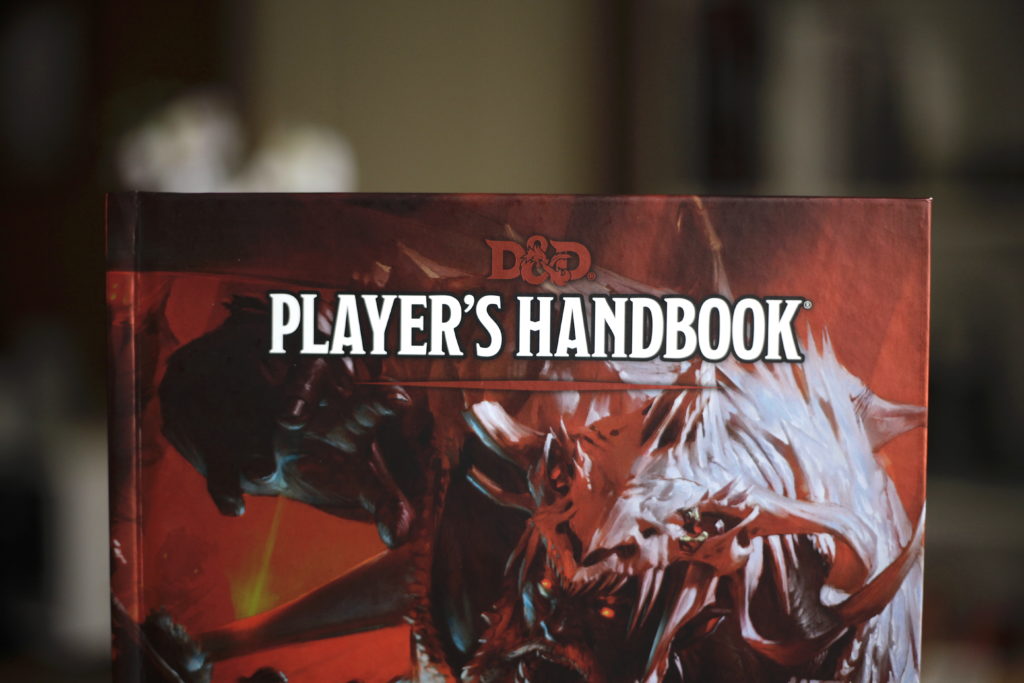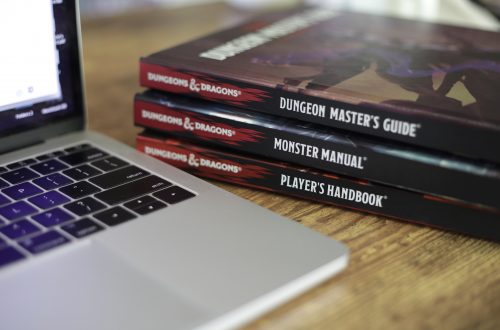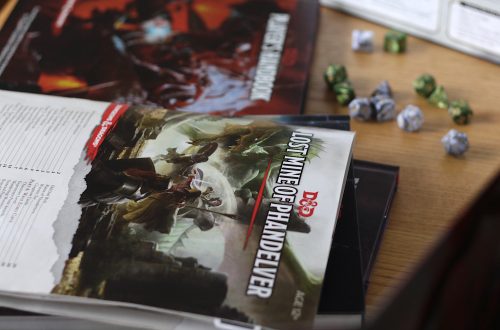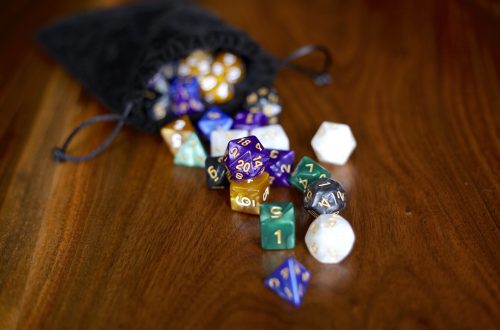D&D 5e Homebrew: The Complete Beginner’s Guide
Hey there! This website does contain affiliate links. If you purchase something through this page, Cats and Dice may earn a share of sales from the link. Learn more.
“Check out my new homebrew item!”
“Would you want to play this homebrew class?”
“I homebrew all my games.”
Experienced Dungeons and Dragons players throw around the term “homebrew” all the time. It can be hard for beginners to understand. It’s hard enough understanding the rules as written! (These are also known as RAW.) So what exactly does homebrew mean, and what exactly does a D&D 5e homebrew look like? Find out in this beginner’s guide.
Homebrew. D&D. 5e. What does it all mean?
Here’s the short definition of homebrew as it relates to Dungeons and Dragons (also known as D&D):
“Any content within a Dungeons and Dragons game that cannot be found in an official rulebook.”
Official rulebooks include (but are not limited to):
- Player’s Handbook
- Dungeon Master’s Guide
- Monster Manual
- Xanathar’s Guide to Everything
- Volo’s Guide to Monsters
How do you know if it’s official? If it’s published by Wizards of the Coast, the company that owns and creates new Dungeons and Dragons materials, then it’s official. If it is not, it is considered homebrew.
That means homebrew can relate to a lot of things. Items, classes, races, and maps can all be homebrewed. For example, if a game is not set in the Forgotten Realms, it’s (generally) homebrew.
In other words, any unofficial content is homebrew.
It is worth noting that you can create your own campaign or your own one-shot and have that be the only thing that’s homebrew. Many games available on Dungeon Master’s Guild use items, maps, and more that come from the official rulebooks. The only unofficial part is the game itself.
So what does 5e mean?
5e is the abbreviation for 5th Edition. If you have only played a few games of Dungeons and Dragons, and they were recent games, most likely you played the 5th Edition. It is the most recent edition and the most popular. For more terms, visit our post on finding a D&D group.

Does my game have homebrew content?
Ask your Dungeon Master (DM) if your D&D 5e game has homebrew content. If your DM is using one of the official games such as Dragon Heist, there is a good chance your game does not include homebrew content. If, however, your DM has written a game just for the players, then odds are better that the content within the game is homebrewed.
Sometimes it’s not easy to know which content is homebrewed and which is not, though. Maybe you’re watching a live stream of D&D and can’t easily ask the DM. Sometimes a player will use the stats of an official class but dress it up a little differently. This is known as “reskinning” content.
Ask yourself these questions to quickly decide if something is homebrewed:
- Is the game set in the Forgotten Realms?
- Does the race or class appear on D&D Beyond without the homebrew tag?
- Have experienced players heard of this content?
If you answered no to any or all of these questions, then odds are high that your game has homebrewed content.
Another way to tell is if something seems like a joke. This is not a hard and fast rule, but if an item or a monster seems unbelievably ridiculous, there’s a greater chance someone homebrewed it.
How do I add homebrew content to my game?
A lot of D&D 5e homebrew content exists because it’s so easy and fun to do! To add homebrew content to your game, follow these tips.
Tip #1: Use other’s content first
I know you’re excited to get your homebrew content out there. Without a lot of experience, though, it can be difficult to understand what makes good homebrew content.
If you make an item, you want to balance it. Don’t make it so overpowered that your game no longer has any challenges. Similarly, you don’t want to make a monster that can kill your players in one round, or vice versa. As a newer player, you might not know how to do this yet.
There’s also a lot of amazing homebrewed content out there already. To find some of it, check out our Pinterest board below. You can also find great content at DMs Guild and Unearthed Arcana. Some DMs and players also enjoy using random generators like this one.
By using other’s content first, you will begin to understand what makes good homebrew content and what does not.
Tip #2: Start small
Change just one thing about an official item or monster and you will have made your first piece of homebrew content! If you introduce a healing potion, for example, you might change one of the dice that a player uses to heal, or you might make it specific to a certain kind of healing.
For monsters, you can change something a monster is resistant in or vulnerable to based on the setting. You can take an animal, like a bear, and make it ideal for dungeon crawls or graveyards by making it undead. Merge the stats with a zombie, and/or make it vulnerable to radiant damage. Instantly you’ll find yourself with a terrifyingly awesome homebrewed monster.
Starting small also means starting with less important items. A magical ring is less likely to cause problems in the game overall than a player using an untested homebrew class for the entire game.
Tip #3: Get feedback
Whenever we create something on our own, be it an adventure, homebrew content, or anything else, it can help to get feedback from others. After creating your homebrewed content, share it with some trusted friends and D&D players for feedback.
To get the best feedback possible, ask specific questions about what you want to know. Are you wondering if a monster would overpower your current party? Are you wondering how much your magical item should cost and who it would be ideal for? The more specific your questions, the better feedback you’ll receive.
For more information on finding and creating quality homebrew content, check out this post.
Homebrew content can add a lot of fun and flavor to your D&D 5e game. As you become more experienced, you will want new challenges and to try new things. If all of this is super overwhelming to you, don’t worry: there’s plenty of content to enjoy in the official rulebooks. Just know that whenever you’re ready to branch out and try something new, homebrew will be there for you.
Hi there! I’m Kristen. I’m a game writer, a Dungeon Master, and like you, I love tabletop games. Visit our About page to learn more about me.
I wrote this Cats and Dice article to help you enjoy gaming even more. Did it help? If so, our kitties (and our site) would be grateful for a little gift through Ko-Fi.




